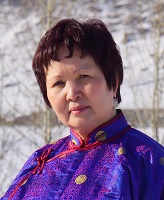Issues of Teaching Tuvan Language in Turkey
DOI:
https://doi.org/10.25178/nit.2018.1.6Keywords:
Turkic language; Tuvan language; Turkish language; issues of language teaching; TurkeyAbstract
Tuvan language is taught and studied both in the Republic of Tuva and beyond its borders. Alongside with other Turkic languages, it is taught at a number of universities in Turkey – and like all languages belonging to the same group, it is taught to Turkish students not as a foreign, but as a cognate tongue. Speaking from her own experience as lecturer in Tuvan language and literature at the University of Ankara (1997-2003), the author shares her opinions on the issues language instructors frequently face when teaching Tuvan to Turkish students.
Since all Turkic languages are understood to stem back to a single ancestor – Proto-Turkic language, the absolute majority of Turkologists see them as dialects of this ancestor tongue. Correspondingly, in their learning experience Turkish students distinguish between foreign languages and those cognate to their mother tongue. Overall, about 20 Turkish universities offer courses in various Turkic languages.
At the moment, quite a lot of specialists in Tuvan – both researchers and educators – work in Turkey. However, there is a marked lack of student motivation to study Tuvan. Students see little incentives of professional career growth except becoming an academic linguist. Another notable issue is the absence of textbooks, study manuals, or Tuvan-Turkish and Turkish-Tuvan phrasebooks which could facilitate achieving the required level of command of Tuvan by Turkish students. This problem as yet remains unsolved.
For Turkish students, learning Tuvan opens the prospect of becoming a Turkologist. For the Republic of Tuva, the presence of such specialists would help popularize Tuvan culture and enhance collaboration between Tuva and Turkey in the areas of science, culture and economy. This will also help develop the relations between Turkey and Russian Federation.
References
Arykoglu, E. and Kuular, K. (2003) Tuva Türkçesi sözlüğü [A Dictionary of the Tuvan Language]. Ankara, Türk Dil Kurumu. 118 p. (In Tuv. and Turkish).
Bicheldei, K. A. (1991) Pogovorim po-tuvinski : posobie dlia izuchaiushchikh tuvinskii iazyk [Let's Talk Tuvan: a Guide for Tuvan Language Learners]. Kyzyl, Tuv. kn. izd-vo. 80 p. (In Russ. and Tuv.).
Mongush, D. A. (2005) Tyva-tүrk slovar'. Tuvaca-Türkçe sözlük [A Tuvan-Turkish Dictionary]. Kyzyl, Tuv. kn. izd-vo. 590 p. (In Tuv. and Turkish).
Salzynmaa, E. B. (1980) Uchebnik tuvinskogo iazyka : dlia studentov russkoi gruppy filologicheskogo fakul'teta Kyzylskogo gosudarstvennogo pedagogicheskogo instituta [A Textbook of Tuvan Language for Russian-Language Class of the Faculty of Philology, Kyzyl State Pedagogical Institute]. Kyzyl, Tuv. kn. izd-vo. 232 p. (In Russ. and Tuv.).
Salzynmaa, E. B. (1991) Russko-tuvinskii razgovornik [A Russian-Tuvan Phrasebook]. Kyzyl, Tuv. kn. izd-vo. 114 p. (In Russ. and Tuv.).
Tuvinsko-russkii slovar' [A Tuvan-Russian Dictionary] (1968): c. 22000 words / ed. by E. R. Tenishev. Moscow, Sovetskaia entsiklopediia. 465 p. (In Russ. and Tuv.).
Van Deusen, K. (1996) Shyaan am! Tuvan Folk Tales / selected and retold by K. Van Deusen. Washington, Belligham, Udahan Books. 47 p.
Published
How to Cite
Issue
Section

Author(s) license holder(s) grant rights for their work to the journal (grantee of a license) under the simple non-exclusive open license in accordance with Art. 1286.1 «Open license for a research work, work of literature or fine arts», Civil Code of the Russian Federation.
New Research of Tuva publishes articles under the Creative Commons Attribution-NonCommercial license (CC BY-NC).
Since it is an open license, author(s) reserve the right to upload the article to their institutional repository, submit it to another journal (if it allows republications), or republish it on their own website (in full, or in part).
However, several conditions apply here:
a) The republished version must always contain the name(s) and affiliation(s) of the author(s), the original title and the hyperlink to the original version on the New Research of Tuva website;
b) It must be in open access, free of charge, and no category of readers must be in any way whatsoever advantaged over general readership.
c) should the contribution be submitted elsewhere by its author(s) without substantial modification (30% or more of original text unchanged), the body of the article should contain a disclaimer that the original version was published in New Research of Tuva (with a link to the respective page)
The CC-BY-NC is a non-revocable license which applies worldwide and lasts for the duration of the work’s copyright.









